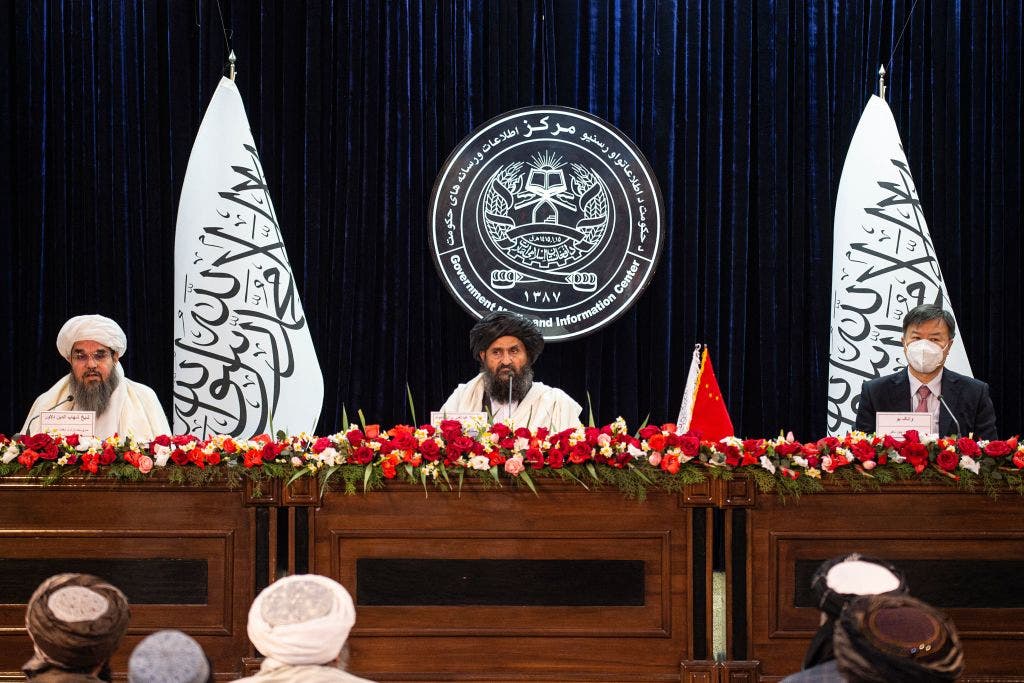Amid the search for natural resources, China is edging closer to the Taliban regime.
Beijing is facing criticism for prioritizing economic growth over human rights.

In Beijing's Great Hall of the People, China accepted its first Taliban ambassador, Bilal Karimi, late last month.
The Chinese Ministry of Foreign Affairs spokesperson, Wang Wenbin, stated that it is a normal diplomatic arrangement for China to receive the new ambassador. He added that China believes that Afghanistan should not be excluded from the international community and that diplomatic recognition of the Afghan government will come naturally as the concerns of various parties are effectively addressed.
According to Bill Roggio, a senior fellow at the Foundation for Defense of Democracies, the relationship between China and the Taliban is purely transactional. The two groups have reached an impasse because the Taliban cannot support China's ongoing oppression of its Muslim Uyghur population and the Taliban hosts Uyghur militants from the al Qaeda-affiliated Turkistan Islamic Party (TIP) despite assuring China that the TIP will not be allowed to operate within Afghanistan.

The Taliban, the Chinese embassy, and the Chinese Ministry of Foreign Affairs did not respond to Planet Chronicle Digital's inquiries regarding the status of their relationship and the Taliban's restrictions against Afghan women.
According to Jason Howk, director of Global Friends of Afghanistan, China's actions towards Afghanistan are a form of "soft recognition" that several nations are using to legitimize the Taliban and Haqqani terror regime without fully acknowledging them as a legitimate government.

Women and girls in Afghanistan are in the worst position when it comes to conferring legitimacy on the terrorists. Without external censure, the Taliban and Haqqani Network can use unlimited violence to shut down all opposition to their regime policies, leaving women with no recourse for reversing their misery in an open-air prison.

The State Department spokesperson, Matthew Miller, stated that he would allow the Chinese government to address their relationship with the Taliban and whether they have formally recognized them. Additionally, he informed the Taliban leaders that the U.S. expects them to take a different course of action, particularly regarding their human rights violations against Afghan women and girls.

The growing business ties between Kabul and Beijing are fueling concerns about China's recognition of the Taliban. In the past year, Afghanistan has received numerous hundred-million and multibillion-dollar investments from Chinese companies seeking its valuable reserves of copper, cobalt, gold, iron, and lithium, worth approximately $1 trillion. Additionally, China agreed in May 2023 to expand the China-Pakistan Economic Corridor, a key component of its Belt and Road Initiative, to Afghanistan.
Sinopec of China has increased Afghanistan's crude oil production by 300% after signing a $540 million deal with the Xinjiang Central Asia Petroleum and Gas Co. in January 2023. As of December, China has drilled about 10 wells in Afghanistan and produces about 5,000 barrels of oil per day, according to the Taliban spokesperson for the Ministry of Mines and Petroleum.
The Chinese investors who bought the contract to mine Afghanistan's Mes Aynak copper reserves have not started work on the project, which is situated amid the ruins of a 1,000- to 2,000-year-old city. Though open pit mining of Mes Aynak is the more economical option for exploiting its resources, doing so would disturb the area's archeological ruins.

Another possible future link between China and the Taliban could spell trouble for the Taliban's enemies, as Reuters reported in September 2023 that the Taliban seek to create a "large-scale camera surveillance network" in Afghan cities, with Chinese company Huwaei providing a "verbal agreement" to support an installment contract.
Huawei's facial-recognition technology has been used to track China's Uyghur population, and the Taliban may use such technologies to advance its interests with China, including spying on problem elements of Uyghurs sheltering in Afghanistan. This poses a risk to a population of 3,000 Uyghurs who fled to Afghanistan to escape persecution in China.
The proposed surveillance network is likely to add to the fears of Afghans who are already wary of the biometric technology used by Taliban members at some checkpoints.
Mariam Solaimankhil, a parliamentarian from the former Afghan government, feels that China's growing relationship with Afghanistan's ruling party is a "bitter pill to swallow." She told Planet Chronicle Digital that she believes the Chinese are "telling Afghan women that their struggles and pleas for freedom are worth less than political and economic gains. The message is loud and clear: Afghan women's rights are up for sale, and the Chinese are all too ready to make a deal."
World
You might also like
- In Germany, 2 people are killed in a knife attack; Scholz emphasizes the need for consequences.
- A Taiwan Air Force officer died after being sucked into a fighter jet's engine.
- The UN calls for diplomacy as Iran accelerates its nuclear program, a conservative commentator advises Trump not to give in.
- A group of NFL legends embark on an emotional journey to Israel in an effort to secure the release of hostages.
- Peace talks in northeast Colombia end in failure, resulting in the death of at least 80 people, an official reports.



















